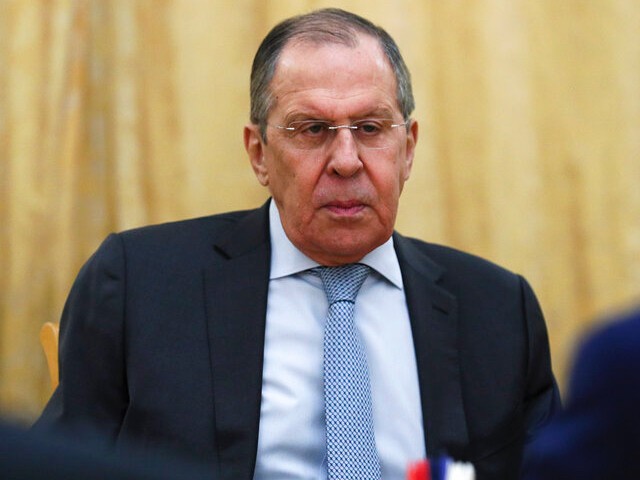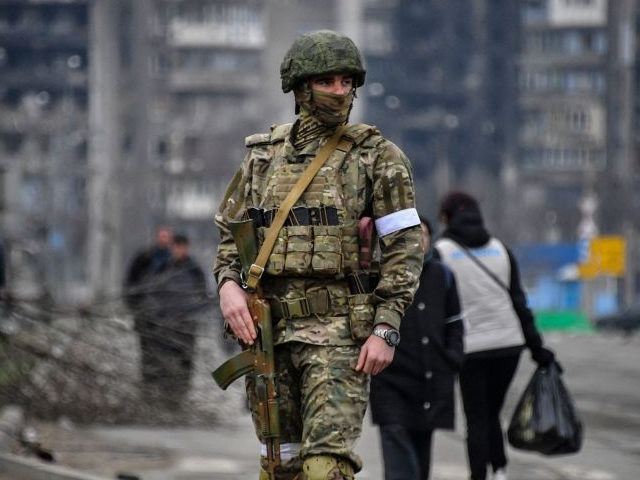Russian Foreign Minister Sergey Lavrov said on Monday that Moscow has no fixed timeline for declaring victory in its invasion of Ukraine, specifically addressing rumors that Russia would try to proclaim some sort of victory on May 9, the day Russia commemorates victory over Nazi Germany in World War II.
“Our troops won’t artificially base their activities on a specific date, including Victory Day,” Lavrov said during an interview with Italy’s Mediaset.
“We will solemnly celebrate May 9, as we always do. Remember those who fell for the liberation of Russia and other republics of the former USSR, for the liberation of Europe from the Nazi plague,” he said.
“The pace of the operation in Ukraine depends, first of all, on the need to minimize any risks for the civilian population and Russian military personnel,” he claimed.
In truth, Russian forces have been persuasively accused of deliberately perpetrating atrocities against Ukrainian civilians. The United Nations Human Rights Council on Monday estimated over 3,000 civilians have been killed during the Russian invasion.
Lavrov insisted the goal of the invasion was to neutralize the threat of “offensive weapons” from Ukraine, as well as “the spread of Nazi ideas that the West is trying to downplay.”

Russian Foreign Minister Sergey Lavrov listens to the U.N. special envoy for Syria, Geir Pedersen, in Moscow, Russia, Wednesday, Feb. 23, 2022. (Russian Foreign Ministry Press Service via AP)
Ukrainian intelligence officials speculated Russia would try to end the war on or before Victory Day because the unexpectedly long and difficult campaign is proving to be a political embarrassment for the Kremlin.
Dictator Vladimir Putin has labored to present himself as the inheritor of Russia’s victorious World War II spirit, steadily increasing the importance of Victory Day as a national holiday. The traditional Moscow military parade will be a much less impressive spectacle if the public knows Russian troops and equipment are suffering devastating losses in Ukraine.
For that matter, the UK Telegraph noted on Sunday that this year’s parade will probably “feature fewer soldiers and tanks” than usual because so many Russian soldiers have been killed in Ukraine, so much equipment destroyed, and much of Russia’s military strength remains committed to the war effort.
A darker prediction is that Victory Day could mark the beginning of a more forceful and vicious Russian offensive, perhaps accompanied by more of the “de-Nazification” rhetoric Lavrov pushed in his Italian interview.
Oleksiy Arestovych, an advisor to Ukrainian President Volodymyr Zelensky, gave an unusual preview of what Russia’s Victory Day offensive might look like by saying in a Saturday interview: “There are some signs that they are preparing a Zerg rush for us.”
As Arestovych went on to explain to his bemused host, the Zerg are a race of alien insects in a popular videogame called Starcraft. A “Zerg rush” occurs when someone playing these aliens sends a huge swarm of cheap and weak units against an opponent.
Arestovych was, in essence, claiming the Russians are massing poorly equipped, minimally-trained volunteers for a human wave assault on Ukrainian positions – an effort Russian media would doubtless portray as a heroic echo of Soviet resistance against the Nazis, no matter how it turns out.
“Judging by the people who are right now reinforcing infantry units of the Russian army, they are not specialists, not artillerists, not tank men. They are recruiting lumpens, they are given some old uniform – given boots from 1951, machine gun from 1947, and a helmet from 1943, and sent into combat,” he said.

COMMENTS
Please let us know if you're having issues with commenting.